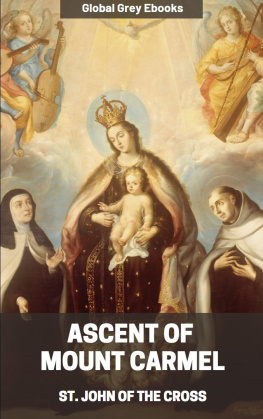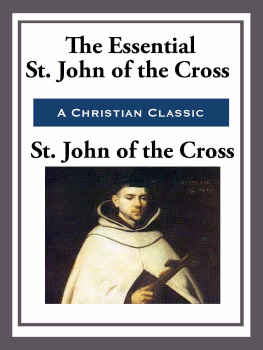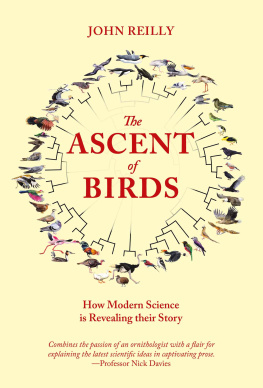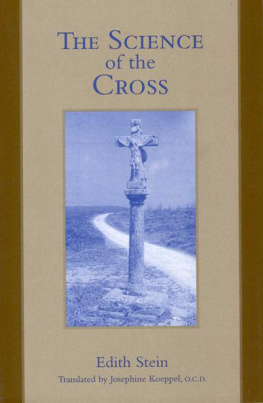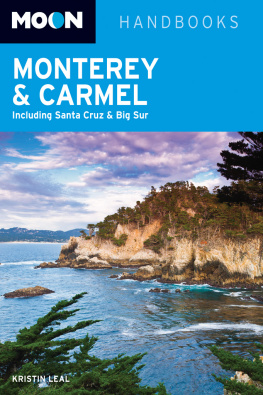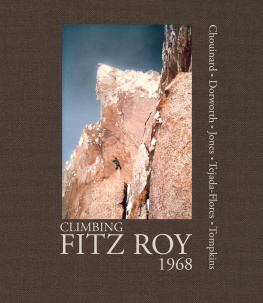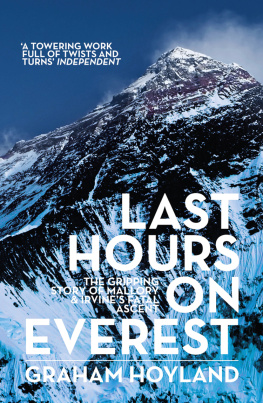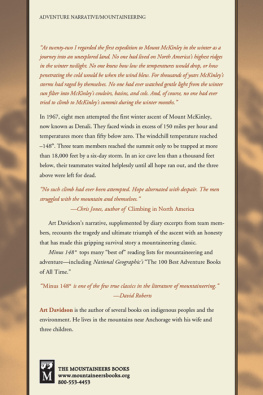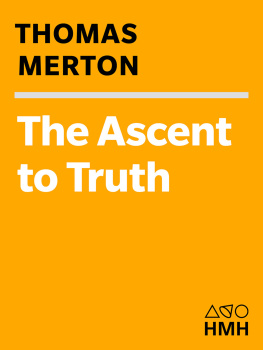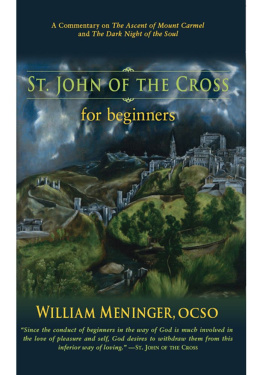St. John of the Cross - Ascent of Mount Carmel
Here you can read online St. John of the Cross - Ascent of Mount Carmel full text of the book (entire story) in english for free. Download pdf and epub, get meaning, cover and reviews about this ebook. year: 2021, publisher: Global Grey, genre: Detective and thriller. Description of the work, (preface) as well as reviews are available. Best literature library LitArk.com created for fans of good reading and offers a wide selection of genres:
Romance novel
Science fiction
Adventure
Detective
Science
History
Home and family
Prose
Art
Politics
Computer
Non-fiction
Religion
Business
Children
Humor
Choose a favorite category and find really read worthwhile books. Enjoy immersion in the world of imagination, feel the emotions of the characters or learn something new for yourself, make an fascinating discovery.
- Book:Ascent of Mount Carmel
- Author:
- Publisher:Global Grey
- Genre:
- Year:2021
- Rating:3 / 5
- Favourites:Add to favourites
- Your mark:
- 60
- 1
- 2
- 3
- 4
- 5
Ascent of Mount Carmel: summary, description and annotation
We offer to read an annotation, description, summary or preface (depends on what the author of the book "Ascent of Mount Carmel" wrote himself). If you haven't found the necessary information about the book — write in the comments, we will try to find it.
Ascent of Mount Carmel — read online for free the complete book (whole text) full work
Below is the text of the book, divided by pages. System saving the place of the last page read, allows you to conveniently read the book "Ascent of Mount Carmel" online for free, without having to search again every time where you left off. Put a bookmark, and you can go to the page where you finished reading at any time.
Font size:
Interval:
Bookmark:
By St. John of the Cross.
This ebook edition was created and published by Global Grey

GlobalGrey 2021
globalgreyebooks.com
ASCENT OF
MOUNT CARMEL
by
Saint John of the Cross
DOCTOR OF THE CHURCH
THIRD REVISED EDITION
Translated and edited, with an Introduction,
by E. ALLISON PEERS
from the critical edition of
P. SILVERIO DE SANTA TERESA, C.D.
NIHIL OBSTAT: CEORGIVS SMITH, S.T.D., PH.D.
CENSOR DEPVTATVS
IMPRIMATVR: E. MORROGH BERNARD
VICARIVS GENERALIS
WESTMONASTERII: DIE XXIV SEPTEMBRIS MCMLII
TO THE
DISCALCED CARMELITES OF CASTILE,
WITH ABIDING MEMORIES OF THEIR HOSPITALITY AND KINDNESS
IN MADRID, VILA AND BURGOS,
BUT ABOVE ALL OF THEIR DEVOTION TO
SAINT JOHN OF THE CROSS,
I DEDICATE THIS TRANSLATION
the greatest of all mystical theologians
Thus has Thomas Merton described St. John of the Cross, echoing the considered judgment of most authorities on the spiritual life; and here in this volume is the great mystics most widely appealing work. Ascent of Mount Carmel is an incomparable guide to the spiritual life because its author has lived his own counsel. Addressed to informed Christians who aspire to grow in union with God, it examines every category of spiritual experience, the spurious as well as the authentic. With rare insight into human psychology it not only tells how to become more closely united with God, but spells out in vivid detail the pitfalls to avoid.
In his Apostolic Letter proclaiming St. John of the Cross a Doctor of the Church, Pope Pius XI wrote that he points out to souls the way of perfection as though illumined by light from on high, in his limpidly clear analysis of mystical experience. And although [his works] deal with difficult and hidden matters, they are nevertheless replete with such lofty spiritual doctrine and are so well adapted to the understanding of those who study them that they can rightly be called a guide and handbook for the man of faith who proposes to embrace a life of perfection.
This translation by E. Allison Peers was hailed by the London Times as the most faithful that has appeared in any European language.
St. John of the Cross was perhaps the greatest mystical writer the world has ever known. Bossuets famous tribute that his writings possess the same authority in mystical theology as the writings of St. Thomas possess in dogmatic theology remains the most fitting testimonial to his august place among spiritual writers.
John was born in Castile in 1542 eve of Spains century of greatness, to which he himself was to add such lustre. He studied under the Jesuits and worked for six years in a hospital. Entering the Carmelites in 1563, he was professed a year later and sent to the great University of Salamanca. He was ordained in 1567 but, shrinking from the apostolate of a priest in the world, considered entering the Carthusians, a hermitical order.
Then came the turning point in his life. He met St. Teresa of vila, who was pursuing her epic work of restoring the pristine, stricter observance of the Carmelite rule. John and two other members of the order took the vows of the Discalced (or reformed) Carmelites the following year, binding themselves to a more rigorous way of life which included daily (and nightly) recitation of the Divine Office in choir, perpetual abstinence from meat, and additional fasting.
Yet his religious vows were but a part of the rigors John was to undergo. The main branch of the order, the Calced Carmelites, so opposed the Reform that they twice had John kidnapped and jailed providentially, so it proved, for much of his writing was done in prison.
The greater part of his twenty-three years as a Discalced Carmelite, however, was spent in filling a number of important posts in the order, among them Rector of two colleges, Prior, Definator, and Vicar-Provincial. But it was in one of his lesser offices that he was to spend the most decisive years of his life: he was confessor to the Carmelite nuns at vila, where St. Teresa was Superior.
The secret of St. Johns unique contribution to mystical theology was not simply his mysticism, for there have been other mystics; not even his profound grasp of Scripture, dogma, Thomism, and spiritual literature, for there have also been learned mystics. What sets him apart is his extraordinary poetic vision. To write of mystical experience is to try to express the inexpressible. Because he was a great poet St. John of the Cross was able, in the realm of mysticism, to push the frontiers of human expression beyond where any writer has succeeded in venturing before or since. This poetic intensity is found even in his prose, the major works of which are Ascent of Mount Carmel, Dark Night of the Soul, Spiritual Canticle, and Living Flame of Love.
St. John of the Cross died in 1591, was beatified less than a century later in 1675, was canonized in 1726, and was named a Doctor of the Church by Pope Pius XI in 1926.
FOR at least twenty years, a new translation of the works of St. John of the Cross has been an urgent necessity. The translations of the individual prose works now in general use go back in their original form to the eighteen-sixties, and, though the later editions of some of them have been submitted to a certain degree of revision, nothing but a complete retranslation of the works from their original Spanish could be satisfactory. For this there are two reasons.
First, the existing translations were never very exact renderings of the original Spanish text even in the form which held the field when they were first published. Their great merit was extreme readableness: many a disciple of the Spanish mystics, who is unacquainted with the language in which they wrote, owes to these translations the comparative ease with which he has mastered the main lines of St. John of the Crosss teaching. Thus for the general reader they were of great utility; for the student, on the other hand, they have never been entirely adequate. They paraphrase difficult expressions, omit or add to parts of individual sentences in order (as it seems) to facilitate comprehension of the general drift of the passages in which these occur, and frequently retranslate from the Vulgate the Saints Spanish quotations from Holy Scripture instead of turning into English the quotations themselves, using the text actually before them.
A second and more important reason for a new translation, however, is the discovery of fresh manuscripts and the consequent improvements which have been made in the Spanish text of the works of St. John of the Cross, during the present century. Seventy years ago, the text chiefly used was that of the collection known as the Biblioteca de Autores Espaoles (1853), which itself was based, as we shall later see, upon an edition going back as far as 1703, published before modern methods of editing were so much as imagined. Both the text of the B.A.E. edition and the unimportant commentary which accompanied it were highly unsatisfactory, yet until the beginning of the present century nothing appreciably better was attempted.
In the last twenty years, however, we have had two new editions, each based upon a close study of the extant manuscripts and each representing a great advance upon the editions preceding it. The three-volume Toledo edition of P. Gerardo de San Juan de la Cruz, C.D. (191214), was the first attempt made to produce an accurate text by modern critical methods. Its execution was perhaps less laudable than its conception, and faults were pointed out in it from the time of its appearance, but it served as a new starting-point for Spanish scholars and stimulated them to a new interest in St. John of the Crosss writings. Then, seventeen years later, came the magnificent five-volume edition of P. Silverio de Santa Teresa, C.D. (Burgos, 1929-31), which forms the basis of this present translation. So superior is it, even on the most casual examination, to all its predecessors that to eulogize it in detail is superfluous. It is founded upon a larger number of texts than has previously been known and it collates them with greater skill than that of any earlier editor. It can hardly fail to be the standard edition of the works of St. John of the Cross for generations.
Font size:
Interval:
Bookmark:
Similar books «Ascent of Mount Carmel»
Look at similar books to Ascent of Mount Carmel. We have selected literature similar in name and meaning in the hope of providing readers with more options to find new, interesting, not yet read works.
Discussion, reviews of the book Ascent of Mount Carmel and just readers' own opinions. Leave your comments, write what you think about the work, its meaning or the main characters. Specify what exactly you liked and what you didn't like, and why you think so.

